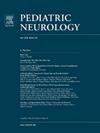Patient and Caregiver Perspectives on the Transition From Pediatric to Adult Neurology Care: A Single-Site Qualitative Study
IF 2.1
3区 医学
Q2 CLINICAL NEUROLOGY
引用次数: 0
Abstract
Background
Transition from pediatric to adult health care setting is a complex process with patients, caregivers and physicians playing a vital role in its success. Our aim was to understand the social needs of young persons with epilepsy and their perspectives on transitioning to adult neurology care.
Methods
We conducted a qualitative survey study of young persons with epilepsy ≥18 years of age. Data were collected from September 21, 2022, to November 15, 2023, at a tertiary pediatric hospital in Ohio. The Health-Related Social Needs Screening Tool and a self-created Barriers to Transition survey, were distributed to patients or their primary caregiver to complete on behalf of the patient.
Results
Thirty-one surveys were completed. The majority of the patients were male (51.6%), with a mean age of 22.1 years, White/Caucasian (74.2%) and not Hispanic/Latino (90.3%). The majority reported having 3 or more social needs (48.4%); the most common being lack of physical activity (83.9%), presence of disabilities (51.6%), and mental health diagnoses (45.2%). The Barriers to Transition survey revealed 35.5% of respondents did not have a transition of care discussion with the clinical team. Only 5 (16.1%) patients attempted to transition to adult care with 3 being successful. A thematic analysis revealed five themes related to barriers in transitioning to adult health care setting: lack of a formal transition process, consistency of specialized pediatric care, insurance, fear/worry, and perspectives of adult care. One facilitator to transitioning theme emerged: treatment plan approach.
Conclusions
Current findings can help with designing neurology transition programs to meet the needs of this complex population.
从儿童到成人神经病学护理过渡的患者和护理者观点:一项单点定性研究。
背景:从儿科过渡到成人卫生保健设置是一个复杂的过程,患者,护理人员和医生在其成功发挥至关重要的作用。我们的目的是了解青少年癫痫患者的社会需求,以及他们对过渡到成人神经病学护理的看法。方法:对≥18岁的青少年癫痫患者进行定性调查研究。数据于2022年9月21日至2023年11月15日在俄亥俄州的一家三级儿科医院收集。与健康相关的社会需求筛选工具和自行创建的过渡障碍调查,分发给患者或其主要照顾者,让他们代表患者完成。结果:共完成调查31项。大多数患者为男性(51.6%),平均年龄22.1岁,白人/高加索(74.2%),非西班牙裔/拉丁裔(90.3%)。大多数人报告有3个或更多的社交需求(48.4%);最常见的是缺乏身体活动(83.9%),存在残疾(51.6%)和精神健康诊断(45.2%)。过渡障碍调查显示35.5%的受访者没有与临床团队讨论过护理过渡。只有5例(16.1%)患者试图过渡到成人护理,其中3例成功。一项专题分析揭示了与向成人医疗保健环境过渡的障碍相关的五个主题:缺乏正式的过渡过程、专业儿科护理的一致性、保险、恐惧/担忧和成人护理的观点。过渡主题的一个促进因素出现了:治疗计划方法。结论:目前的研究结果可以帮助设计神经学过渡方案,以满足这一复杂人群的需求。
本文章由计算机程序翻译,如有差异,请以英文原文为准。
求助全文
约1分钟内获得全文
求助全文
来源期刊

Pediatric neurology
医学-临床神经学
CiteScore
4.80
自引率
2.60%
发文量
176
审稿时长
78 days
期刊介绍:
Pediatric Neurology publishes timely peer-reviewed clinical and research articles covering all aspects of the developing nervous system.
Pediatric Neurology features up-to-the-minute publication of the latest advances in the diagnosis, management, and treatment of pediatric neurologic disorders. The journal''s editor, E. Steve Roach, in conjunction with the team of Associate Editors, heads an internationally recognized editorial board, ensuring the most authoritative and extensive coverage of the field. Among the topics covered are: epilepsy, mitochondrial diseases, congenital malformations, chromosomopathies, peripheral neuropathies, perinatal and childhood stroke, cerebral palsy, as well as other diseases affecting the developing nervous system.
 求助内容:
求助内容: 应助结果提醒方式:
应助结果提醒方式:


